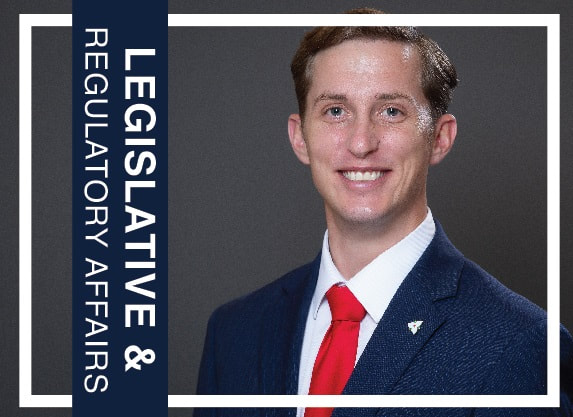|
by John Alexander, Director of Legislative & Regulatory Affairs
Implications for DakCU Member Credit Unions In a significant development that could reshape the credit card transaction landscape, Visa, Mastercard, and several U.S. merchants announced a settlement on Tuesday, marking the culmination of a lawsuit dating back to 2005 over credit card interchange fees. This groundbreaking agreement will see Visa and Mastercard capping credit card interchange fees until 2029, a move poised to have far-reaching implications for financial institutions, merchants, and consumers alike. For DakCU and its member credit unions across North and South Dakota, the announcement is met with a mix of anticipation and concern. The settlement outlines several key changes that could impact the operations and competitive positioning of credit unions. Allowance for Merchant Surcharging: Merchants will have the option to add a surcharge of up to 3% on transactions made with Visa or Mastercard branded credit cards. This development raises concerns about the potential for increased transaction costs for credit union members, which could, in turn, affect their choice of payment methods. Visa and Mastercard have agreed to adjust their policies to enable merchants to offer discounts based on the card issuer. This change could influence consumer behavior by encouraging the use of payment methods that offer the most significant advantages to merchants, possibly disadvantaging credit unions whose cards might not be the preferred option under this new scheme. The settlement also modifies the "honor all cards" rules to allow merchants to accept and promote certain digital wallets over others and to steer consumers towards specific cards within those wallets. This adjustment threatens to complicate the digital payments ecosystem, potentially sidelining credit union-issued cards in favor of those that offer merchants lower transaction fees. Perhaps most notably, the agreement includes a reduction in the interchange fees that merchants pay, effective for the next five years. While this might reduce costs for merchants, it could also diminish the revenue that credit unions derive from interchange fees, challenging their ability to provide competitive rates and services to their members. The settlement awaits approval from the Eastern District Court of New York. Should it pass, these changes will necessitate a strategic reassessment among DakCU's member credit unions, compelling them to navigate a new financial landscape marked by altered fee structures and changing consumer behaviors. Engaging in dialogue with policymakers and leveraging industry associations for collective advocacy could amplify DakCU members' voices, ensuring your concerns and needs are considered in the implementation of these changes. A Controversial Fed Proposal Raises Concerns Over Banking Costs and Retailer Gains The Federal Reserve's proposal to cut debit card transaction fees by 30% is sparking a major debate. These fees, which stores pay to credit unions whenever you use your debit card, are vital. They help cover important costs for credit unions, like stopping fraud and providing customer service. After these fees got a cap in 2011, many credit unions had to stop offering free checking accounts and raised other fees, pushing some people away from using a financial institution at all. Even though stores said they'd lower their prices if these fees were cut, it turns out that hasn't really happened. Instead, it looks like the stores just kept the extra money for themselves, adding up to billions. Now, with the Fed suggesting another cut, there's worry about what it'll mean for everyone. Will it end up costing consumers more for their banking services and put extra pressure on smaller credit unions? DakCU is saying this could make banking more expensive for regular folks and a tough challenge for the smaller credit unions out there. Check out the “myth vs fact” document by our national colleagues. NCUA Board Member Tonya Otsuka in Upcoming Dakota Team Town Hall The DakCU team is gearing up for an enriching experience as we welcome Tonya Otsuka, esteemed Board Member of the National Credit Union Administration (NCUA), to our next town hall meeting. This session, set for April 9th at 3:00 p.m. (CT), promises to offer a deeper dive into the concerns and aspirations that shape our work and environment. Tonya Otsuka, with her extensive background in financial regulation and commitment to the credit union movement, will be sharing her insights on a range of topics pertinent to our team's growth and the broader credit union community. Her perspective is especially valuable considering her role in shaping policies and practices that impact our day-to-day operations and long-term strategies. In anticipation of Otsuka's talk, we are opening the floor to you, our team members, to submit questions you'd like addressed during her presentation. Whether it's about regulatory changes, strategic planning, or the future of credit unions, your questions will pave the way for a meaningful dialogue. Please direct your inquiries to John Alexander by Tuesday, April 2nd. This will provide ample time for Otsuka's advisor and executive assistant to organize the session to cover topics of wide interest and relevance. How to Submit Your Questions:
Let's make the most of this opportunity to gain from NCUA Board Member Otsuka's expertise and vision for the credit union sector. Comments are closed.
|
The MemoThe Memo is DakCU's newsletter that keeps Want the Memo delivered straight to your inbox?
Archives
July 2024
Categories
All
|
|
Copyright Dakota Credit Union Association. All Rights Reserved.
2005 N Kavaney Dr - Suite 201 | Bismarck, North Dakota 58501 Phone: 800-279-6328 | [email protected] | sitemap | privacy policy |





